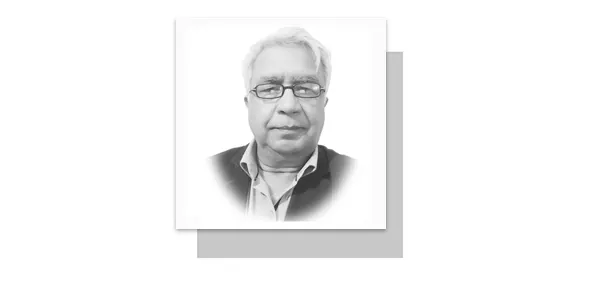A glance around Pakistan reveals the stark contrast between the widespread struggles of its people and the affluence of the nation’s elite. The escalating cost of living, rising poverty and soaring unemployment are leaving many Pakistanis on the brink of despair. In sharp contrast, the wealthy bourgeoisie are enjoying unprecedented prosperity, amassing significant wealth and profits. This disparity highlights a deep financial, social and political divide within the country. Despite being 77 years old, Pakistan continues to face significant challenges. Improving the quality of life for its citizens remains an elusive goal, primarily due to the persistent socio-political divide. The burdens of inflation, unemployment and poverty are exacerbated by excessive and unjustified taxation, further straining an already struggling populace.
Political instability not only deepens social divisions but also hampers the state’s ability to function effectively. The ruling party often expends more energy undermining its opponents than addressing the nation’s pressing issues. This infighting and power struggle lead to favoritism and oppression, further alienating the public. In such a volatile environment, political leaders risk losing their influence and power if they fail to unify and collaborate. Instead of addressing the country’s economic woes, many politicians are preoccupied with maintaining or expanding their own power. They neglect crucial tasks such as legislation, fundraising and developing strategies to aid the impoverished. This negligence contributes to the shrinking of the middle class and worsens the suffering of the poor.
Pakistan’s economic struggles are more a result of corrupt and self-serving politics than a lack of resources. Those in power have the means to combat corruption and drive meaningful change. However, a flawed political system allows corruption to permeate every level of government. We should take a lesson from neighboring countries like China, India and Bangladesh, which have improved the economic status of their citizens by empowering women through loans and support for entrepreneurship. In contrast, Pakistan’s approach of distributing cash through international loans has led to increased dependency rather than fostering self-sufficiency. The distribution of laptops and other items might earn politicians temporary praise, but these actions are not long-term solutions. True wisdom lies in establishing the much-needed industrial infrastructure that can provide employment opportunities for a large number of unemployed youths. Similarly, the funds currently spent on cash distribution programs should be redirected toward establishing businesses, industries and agricultural infrastructure. This policy shift has become essential and unaffordable for the people of Pakistan and needs urgent revision. Pakistan does not possess the vast resources of oil-rich nations like Saudi Arabia; instead, available funds must be used for development in technology and research.
Another critical area that needs urgent attention is Pakistan’s exports. Pakistan needs to develop cordial relationships with nations worldwide to enhance its export sector. The country should focus on exporting whatever it can produce to earn much-needed revenue instead of continuously seeking new loans. Diplomatic efforts should be intensified to achieve export targets to almost every country in the world. Improving the poor law and order situation is crucial to maintaining justice and mitigating corruption. Without these measures, people become more prone to committing crimes rather than working for social development. Pakistan needs a society based on justice, equality and freedom more than ever to solve its long-standing socio-political issues. Many societies have gone through similar stages and fought wars or undergone revolutions to achieve sustainable civilization levels, as exemplified by China, America and Canada.
Although much time has passed, there is still hope for redemption. Pakistanis are a resilient nation and can evolve into a prosperous, progressive society if the proper environment and direction for their struggle are ensured. This is what the government needs to address urgently. However, no plan can change the nation’s destiny unless we reach a consensus on managing and controlling our population. Over time, Pakistan has only paid lip service to the issue of overpopulation which has become a significant obstacle on the path to prosperity. If the country seriously addresses its overpopulation issue and implements sustainable planning, the long-standing challenges of resource allocation and sustainability can be effectively tackled. It is evident that for Pakistan to overcome its challenges, a fundamental shift in political practices and economic policies is essential. Only by addressing these issues head-on can nation hope to bridge divide and build a more equitable society.
—The writer is a Professor of English at Emerson University, Multan, and has a vast international exposure.










